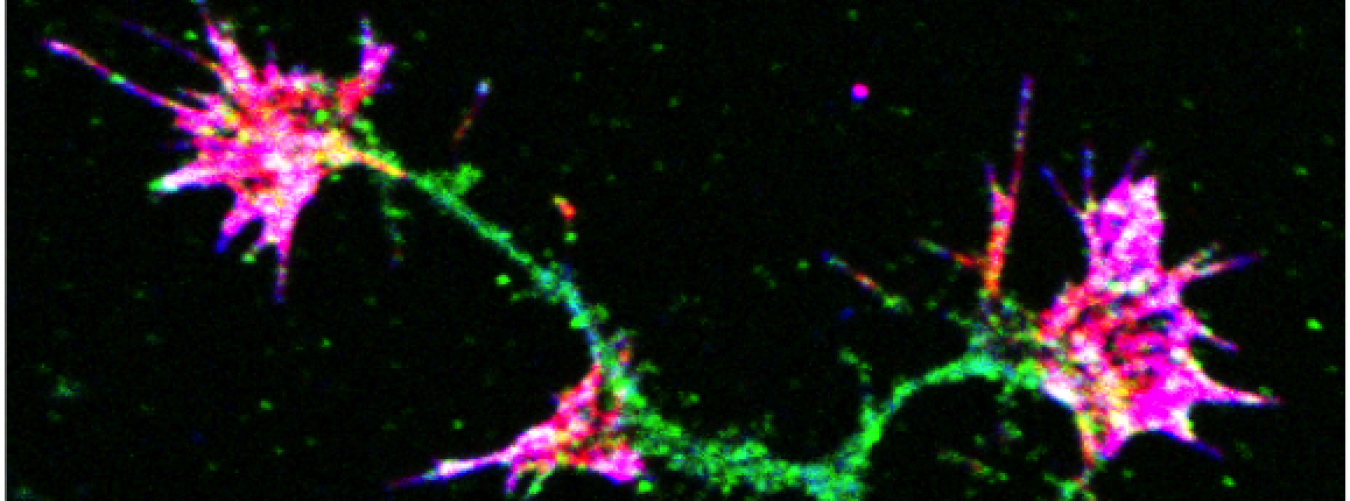 26th June 2018
26th June 2018
Wessex immunology group spring meeting focusing on mucosal immunology was an insightful day with significant appeal to people in all stages of their career with varied experience in immunology. As a postgraduate researcher investigating host-pathogen interactions of bacterial species within the dysregulated mucosal environment of the cystic fibrosis lung, I was astounded by the sheer breadth and relevancy of the data presented on the day. The day started with Professor Jeremy Webb presenting the involvement of biofilms in chronic infection of mucosal surfaces: this was an extremely relevant talk to my research and was a fantastic opening talk for the day. Professor Webb was followed by Dr Emily Thornton who is interested in the interaction between intestinal microbiota and the host, her research presented some innovative methods and immunological pathways associated with this colonisation.
The PhD students presenting their research in the second session highlighted the superb supervision and teaching that occurs here are the University of Southampton, their research was interesting and appealed to both bioengineers and cell biologists alike. This session additionally involved talks from Dr Markus Britschgi, a research scientist at Roche pharmaceuticals. The research he presented emphasised the importance of alpha-synuclein in inflammation and its role in the peripheral nervous system and indicated how important translational research is.
The final two sessions included talks from Professor Sheena Cruikshank who presented exciting research on epithelial microbial interactions and their role in inflammation and injury. She was a fantastic speaker and her work was truly relevant to what I do! This had to be one of my favourite talks of the day. Talks following included Dr Joost Brandsma looking at lipidomic profilings of the epithelial lining fluid, which showed the importance of these lipid profiles in disease. Professor Andrew MaDonald presented very interesting research on pulmonary macrophage responsiveness during type 2 inflammation, which was both novel and exciting.
Overall it was a fantastic day, with a great breadth of speakers talking about a good variety of talks all focused on mucosal immunology. It was a good opportunity to meet some world exerts in mucosal immunology and truly understand what underpins their research; additionally it was a fantastic day of networking and learning more about what exciting research is driving the Wessex immunology group.
Bhavik Barochia
Postgraduate Researcher – Clinical Microbiology
University of Southampton

Alan Sanderson also attended the Wessex Immunology Group Spring Meeting along with a great turnout of delegates. We enjoyed well-curated programme with talks of varied lengths and style, which made for a healthy tempo throughout the session. In my own PhD research, I am investigating the activity of the immune system in the inner ear and auditory brain so I was hoping to gain transferable knowledge from people working in different areas of immunology. The breadth of focus across the talks really open my eyes to different ways of thinking about the immune system.
Professor Jeromy Webb kicked off the proceedings giving an overview of his work at the University Of Southampton. He told us about the National Biofilms Innovation Centre, which is a network of industrial and academic collaborators driving discovery and applications for biofilm technologies. Later in the morning session, James Davies from the University Of Southampton talked about his work using DropSeq for single cell analysis of gene expression. I was excited to learn how this new technique allows reearchers to probe the expression profiles of thousands of individual cells without homogenising the tissue. Dr Markus Britschgi from Roche gave the final talk of the morning session. I have to admit a biased interest towards neuro-inflammation so I found this talk particularly interesting. Markus showed us evidence of the Parkinsons Disease protein α-synuclein propagating across tissue like prions in a transgenic mouse model. Interestingly he also showed evidence of α-synuclein positive macrophages, which challenges the dogma that this protein is exclusively neuronal.
Following the lunch break, Professor Sheena Cruickshank from the University of Manchester gave an entertaining presentation of her work. She has been working with a knockout mouse model that develops spontaneous colitis. She highlighted a key limitation of investigating he gut mucosa using stool sample analysis. The species profile of bacteria in faeces and mucosa are quite distinct so one should not be taken to represent the other. Another visitor from Manchester, Professor Andrew MacDonald told us how lung macrophages found in alveoli and interstitial space have different phenotypes. This means that macrophages are differentially responsive to suppression by interleukin-4. In the end, it seems that local tissue conditions such as glucose availability modulate this phenotypic variation. Several lines of evidence from the meeting were encouragement to study the immune system on a cell-by-cell basis. We learned that an individual macrophage can be phenotypically unique depending on environmental factors such as cytokines and other organic molecules. This message has direct applicability for me looking at microglia in the auditory system.
The meeting was sponsored by Flowcel, Fluidigm, Thermo Fisher, Miltenyi Biotec, BD Biosciences, Stemcell Technologies and UCB. It was a pleasure to meet representatives from these companies to thank them for helping to make the day such a success.
Alan Sanderson
Postgraduate student Neuroimmunology
University of Southampton


